How Home Nursing Can Help in Orthopedic Recovery - Knee and Hip Replacement
Orthopedic surgeries such asknee replacement and hip replacement are major medical interventions that require precise post-operative care. While the surgery itself is a one-time event, the recovery process is lengthy and requires continuous monitoring, rehabilitation, and expert care to prevent complications. Unfortunately, many patients fail to recognize the importance of professional home nursing services in ensuring a smooth, safe, and quick recovery.
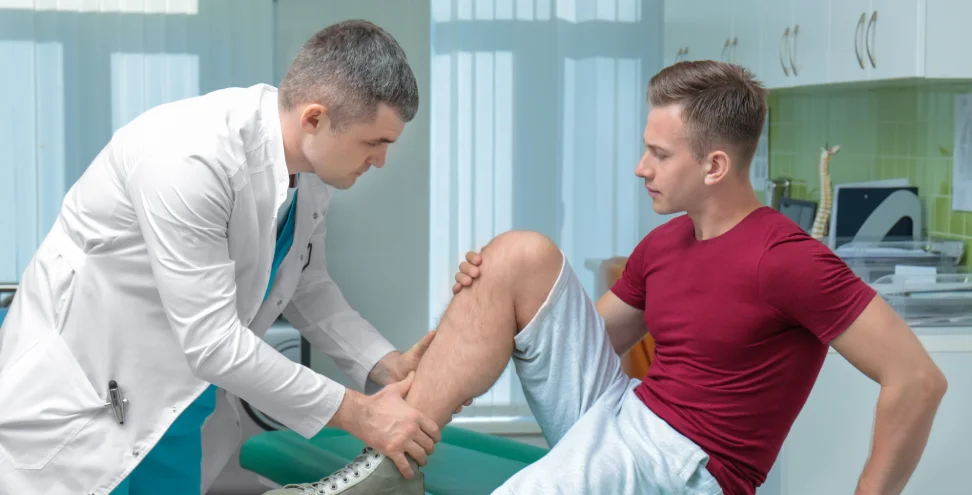
Ignoring professional care often leads to hospital readmissions, prolonged recovery, and increased medical expenses. This blog will break down why home nursing is essential for orthopedic recovery and present strong, data-backed reasons to opt for professional nursing support instead of relying solely on family members.
Why Home Nursing Is Crucial for Orthopedic Recovery
1. Preventing Post-Surgical Complications
According to medical studies, 20-30% of orthopedic patients experience complications such as blood clots, infections, joint stiffness, and excessive pain due to inadequate post-operative care. The cost of managing these complications in a hospital can range from ₹50,000 to ₹2,00,000, depending on severity.
A dedicated home nurse plays a critical role in preventing such complications through:
- Regular wound dressing and infection control
- Monitoring vitals such as blood pressure, sugar levels, and oxygen saturation
- Ensuring timely administration of prescribed medications to prevent deep vein thrombosis (DVT) and post-operative pain
- Recognizing early warning signs of complications and alerting doctors immediately
Patients who receive home nursing care post-surgery are 40% less likely to be readmitted within the first 30 days compared to those without professional home care.
2. Faster Recovery and Improved Mobility
The success of an orthopedic surgery is not just measured by how well the procedure was performed but also by how quickly and effectively the patient regains mobility. Rehabilitation is a crucial part of this process, and lack of proper physiotherapy can result in permanent stiffness, muscle weakness, and reduced joint function.
A trained home nurse provides:
- Assistance with daily exercises to improve joint flexibility and strength
- Guidance on safe walking techniques to avoid strain on the operated joint
- Support in using assistive devices such as walkers, canes, and knee braces
- Prevention of accidental falls, which can lead to severe setbacks
Patients who receive professional home physiotherapy recover 30-50% faster than those who rely on self-rehabilitation.
3. Cost-Effectiveness Compared to Hospitalization
Many patients assume that hospital stays are the best option for recovery. However, the cost of extending a hospital stay after surgery is significantly higher than opting for home nursing care.
|
Expense Type |
Hospital Stay (Per Day) |
Home Nursing Care (Per Day) |
|
Room Charges |
₹5,000 - ₹15,000 |
₹1,500 - ₹3,500 |
|
Doctor Consultations |
₹3,000 - ₹7,000 |
₹1,000 - ₹2,500 |
|
Nursing Services |
₹4,000 - ₹8,000 |
₹1,500 - ₹3,500 |
|
Physiotherapy |
₹2,500 - ₹5,000 |
₹800 - ₹2,000 |
|
Medication & Tests |
₹5,000 - ₹10,000 |
₹2,000 - ₹5,000 |
|
Total Cost (Per Month) |
₹3,00,000 - ₹5,00,000 |
₹80,000 - ₹1,50,000 |
Patients can save up to 60% by choosing home nursing care over prolonged hospital stays while still receiving high-quality medical attention.
4. Personalized Care and 24/7 Monitoring
Unlike hospitals, where a nurse is assigned to multiple patients, a home nurse provides one-on-one attention. This personalized care ensures that:
- The patient's specific needs are prioritized, from medication schedules to pain management
- Post-surgical diet and nutrition plans are followed correctly to support healing
- Mental health and emotional well-being are addressed, reducing post-surgical anxiety and depression
A study conducted by The Indian Journal of Orthopedics found that 85% of patients recovering at home with professional nursing care reported higher satisfaction levels compared to those recovering in hospitals.
5. Assistance with Daily Activities and Hygiene
Post-surgical recovery often limits a patient’s ability to perform basic activities such as bathing, dressing, and using the toilet. Ignoring hygiene and daily movement can lead to bedsores, muscle stiffness, and infections.
A professional home nurse ensures that the patient:
- Receives assistance with bathing and dressing to maintain hygiene
- Is repositioned regularly to prevent bedsores and stiffness
- Follows a structured routine that includes movement, hydration, and balanced nutrition
This not only speeds up recovery but also prevents dependency on family members, allowing them to focus on emotional and logistical support.
6. Reducing Emotional and Physical Strain on Family Members
Caring for a post-surgical patient is not just time-consuming but also physically and emotionally exhausting. Family members often lack medical knowledge, leading to mistakes in medication, improper wound care, or unintentional delays in rehabilitation exercises.
By hiring a home nurse, families can:
- Ensure proper medical care without risking errors
- Avoid caregiver burnout, which affects over 60% of family caregivers
- Have peace of mind knowing their loved one is receiving professional support
A trained nurse brings expertise and efficiency that even the most well-intentioned family member cannot match.
7. Reducing the Risk of Rehospitalization
Rehospitalization after knee or hip replacement is common among patients who lack proper post-operative care. The cost of an additional hospital stay can range between ₹1,00,000 to ₹5,00,000, depending on the severity of complications.
According to medical research:
- Patients with home nursing support have a 50% lower risk of rehospitalization
- 85% of patients recover fully within 3-6 months with structured home-based rehabilitation
- Patients receiving home care experience less pain, faster mobility, and improved quality of life compared to those without professional assistance
By choosing home nursing, patients avoid unnecessary hospital visits, saving both time and money while ensuring faster recovery.
Final Verdict: Home Nursing Is a Necessity, Not a Luxury
Many people believe that home nursing services are an extra expense. The reality is that they are a necessity for proper orthopedic recovery. The cost of complications, hospital readmissions, and delayed recovery far outweighs the expense of hiring a trained home nurse.
A professional home nursing setup ensures:
- Faster and safer recovery
- Lower medical expenses compared to hospital stays
- Personalized attention leading to better health outcomes
- Reduced stress on family members
For anyone undergoing knee or hip replacement, investing in home nursing care is not just a good decision—it’s a lifesaving one. Avoid unnecessary risks, speed up recovery, and ensure the best possible outcome by choosing professional home nursing services today.
FAQs on How Home Nursing Can Help in Orthopedic Recovery (Knee/Hip Replacement)
1. How does home nursing improve recovery after a knee replacement?
Home nursing ensures proper wound care, pain management, and mobility exercises for faster recovery after a knee replacement surgery. A trained nurse helps reduce complications like infections, swelling, and stiffness.
2. Is home nursing necessary after a hip replacement surgery?
Yes, home nursing services are essential after a hip replacement to assist with movement, prevent falls, and monitor post-surgical complications. Professional care reduces the risk of rehospitalization by 50%.
3. How much does home nursing care cost in India after orthopedic surgery?
The cost of home nursing services in India varies from ₹1,500 to ₹3,500 per day, which is 60% cheaper than hospital stays. It covers post-operative care, medication management, and physical rehabilitation.
4. Can home nursing prevent post-surgical complications like infections and blood clots?
Yes, home healthcare services significantly reduce the risk of infections, deep vein thrombosis (DVT), and pressure ulcers by ensuring proper hygiene, medication administration, and early complication detection.
5. How long do patients need home nursing after knee or hip replacement?
Most patients require home nursing care for 4 to 12 weeks post-knee or hip replacement surgery, depending on their recovery speed. Continuous care ensures better joint function and reduced pain.
6. What rehabilitation support does a home nurse provide after orthopedic surgery?
A professional home nurse assists with daily physiotherapy, pain management, and mobility training, ensuring faster recovery from knee or hip replacement surgery while preventing long-term stiffness.
7. Does home nursing help elderly patients recover better from orthopedic surgeries?
Yes, elderly patients recovering from orthopedic surgeries benefit from 24/7 home nursing services, ensuring personalized care, fall prevention, and nutritional support for faster healing.
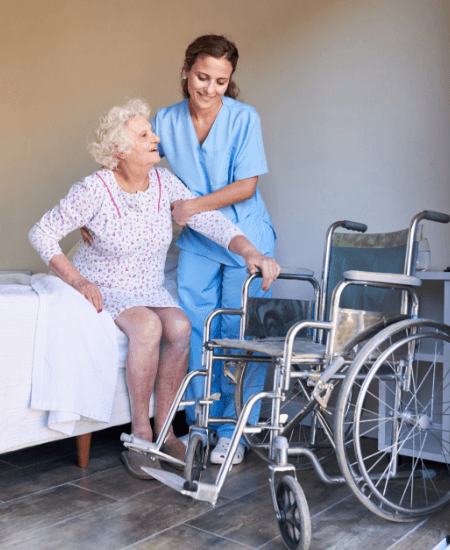






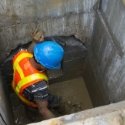



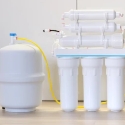
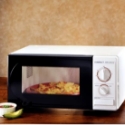


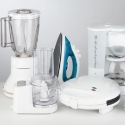
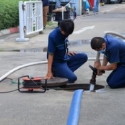


Post a Comment